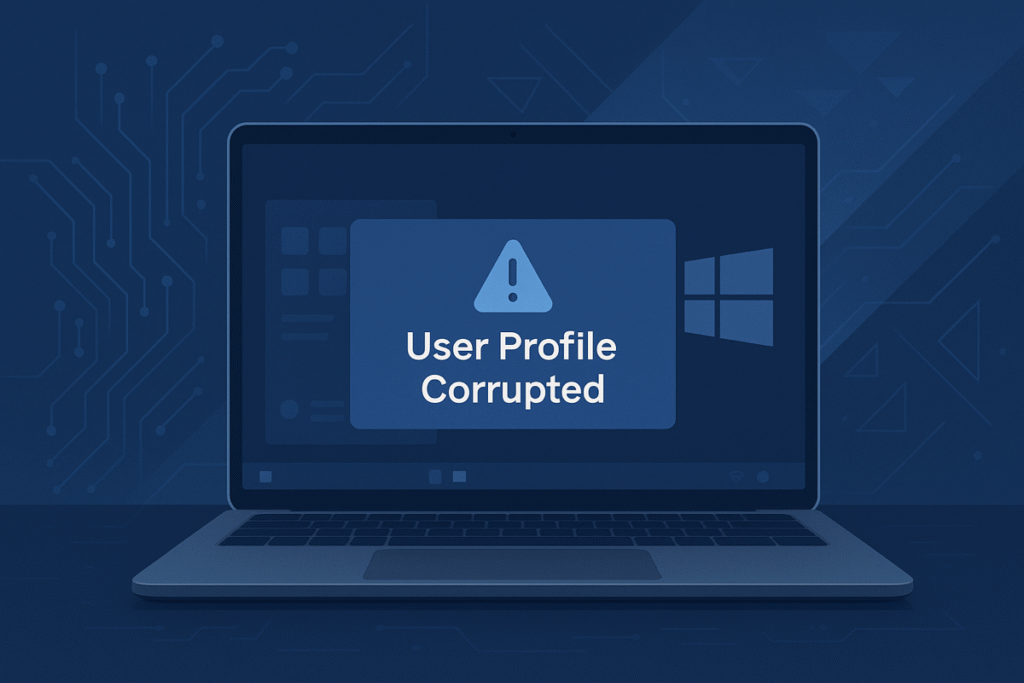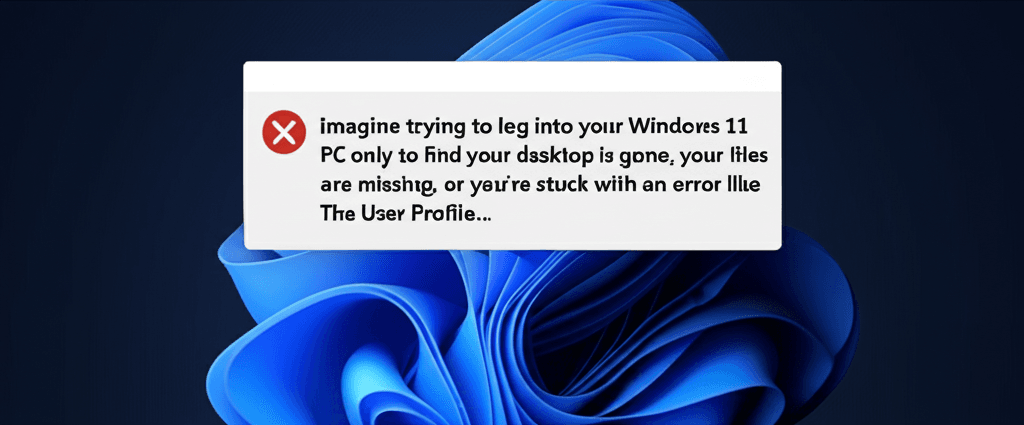Experiencing a corrupted user profile in Windows 11 can be one of the most frustrating issues for any user. Whether you encounter missing files, a blank desktop, or error messages like The User Profile Service failed the sign-in, this problem can grind your productivity to a halt. Fortunately, there are proven methods to resolve this issue effectively.

Common Causes of User Profile Corruption
A user profile in Windows 11 contains your personal data, preferences, and system settings. Corruption can occur for various reasons, including:
- Sudden Power Loss: Unexpected shutdowns or power failures can interrupt critical system processes, leading to corruption.
- Malware Attacks: Viruses or malicious software may damage system files, including user profiles.
- Hard Drive Errors: Physical damage or logical errors on the storage device can corrupt stored data.
- Software Conflicts: Faulty applications or driver incompatibilities may cause profile corruption.
- System Updates: Occasionally, Windows updates might interfere with user profiles, as noted by some users in 2024.
Identifying a Corrupted User Profile
Recognizing the symptoms early can help in swift resolution. Look for these signs:
- Failed Logins: Inability to sign in or extremely slow login times.
- Temporary Profiles: Being redirected to a temporary profile upon login.
- Missing Data: Files, applications, or settings not appearing as usual.
- Error Messages: Prompts like User profile cannot be loaded or similar warnings.
Step-by-Step Solutions to Repair a Corrupted Profile
1. Backup Important Data
Before attempting any fixes, ensure your data is safe:
- Use an external drive or cloud storage to back up files from the corrupted profile.
- Access files via Safe Mode if normal login isn’t possible.
2. Create a New User Profile
One of the simplest solutions, as highlighted in 2024, is creating a new profile:
- Press Windows + I to open Settings.
- Navigate to Accounts > Family & other users.
- Click Add account and follow the prompts to create a new administrator account.
- Log in to the new profile and transfer your files from the old profile.
3. Run System File Checker (SFC) and DISM
These built-in tools can repair corrupted system files:
- Open Command Prompt as Administrator.
- Type
sfc /scannowand press Enter. Wait for the scan to complete. - Follow up with
DISM /Online /Cleanup-Image /RestoreHealthto fix deeper system issues.
4. Manually Copy Data from the Corrupted Profile
If the profile is partially accessible:
- Navigate to C:Users in File Explorer.
- Locate the corrupted profile folder and copy essential data to the new profile.
5. Perform a System Restore or Reset
As a last resort:
- Use System Restore to revert to a previous working state.
- Consider a full system reset (back up data first).
Preventing Future Profile Corruption
- Regular Backups: Maintain frequent backups of critical data.
- Stable Power Supply: Use a UPS to prevent shutdowns during power outages.
- Antivirus Software: Keep your system protected from malware.
- Update Software: Ensure Windows and drivers are up to date to avoid compatibility issues.
By following these steps, you can swiftly recover from a corrupted user profile in Windows 11 and safeguard your system against future occurrences.

Leave a Reply